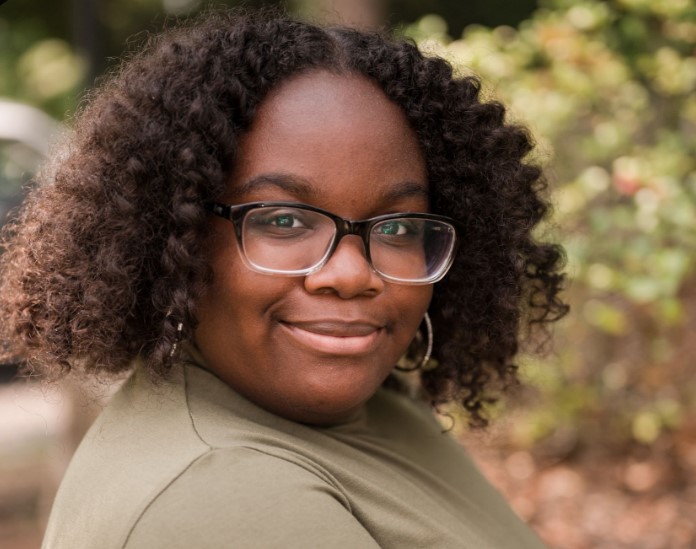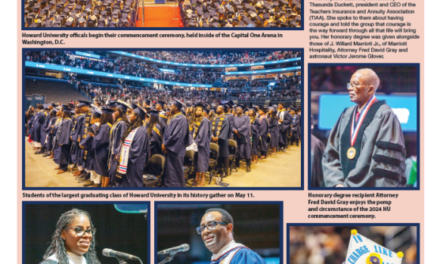By Ashley Estelle

Angela Alsobrooks, an attorney and the county executive of Baltimore County, was recently nominated for Maryland’s open U.S. Senate seat. Given that nomination, and the fact that current Vice President Kamala Harris is of Black descent, you might think that Black women are serving in the U.S. government in considerable numbers. Unfortunately, you’d be wrong. If Alsobrooks wins, she will become only the fourth Black woman ever to serve in the U.S. Senate. Alsobrooks’ May 14th primary victory highlights an important moment for Black women in politics, reflecting ongoing progress and challenges. Her strength and determination—even in the face of racist and hateful attacks like vandalism on her campaign signs—mirror Black women’s convictions throughout their long history of political involvement.
As a Black woman myself, this recurring need for resilience hits particularly close to home for me, shaped not just by the broader strokes of history but by the intimate details of my upbringing. I vividly recall my mother proudly wearing her “I voted” sticker each time an election came around. Her interest in participating in the democratic process wasn’t just about casting a ballot; it was a unique expression of her belief in the power of collective voices to effect change in our country. Now, remembering those “I voted” stickers makes me realize that it was only a few generations ago that women in my family were constantly struggling to vote.
Even as the 19th Amendment was ratified in August of 1920, many Americans knew that African-American women would remain disenfranchised. Despite the amendment put in place, discriminatory practices such as poll taxes, literacy tests, and outright intimidation continued to disenfranchise the black community, particularly in the South. Black women organized and participated in conventions and gatherings across the country to advocate for suffrage and other issues. Their initiatives became hubs of activism, fostering solidarity and pushing their voices in the fight for political rights and equity. Ida B. Wells-Barnett, Sojourner Truth, Mary Ann Shadd Cary, and Mary Church Terrell were among the prominent Black suffragists. Their leadership and activism were instrumental in advancing the cause of suffrage, challenging both racial and gender discrimination.
The voting rights movement has often overlapped with human rights movements. Suffragists like Mary Church Terrell—a pioneering educator and the first president of the National Association of Colored Women (NACW)—focused on voting and broader issues of equality and justice. During the abolitionist movement, enslaved and free Black individuals addressed women’s rights. They dealt with racism and sexism, often finding themselves marginalized and excluded from mainstream suffrage organizations. Despite those obstacles, there was continued persistence in their goal of equality and justice not just for themselves, but for all.
Presently, Black women have emerged as a powerful force in recent elections, demonstrating high voter turnout rates and playing roles in mobilizing voters. Our efforts were instrumental in securing victories for Joe Biden and Kamala Harris in 2020. Our collective power and commitment to political participation highlight the importance of amplifying Black women’s voices and representation in electoral politics. The resounding support for Biden-Harris, with approximately 90% of Black women casting their ballots in their favor, underscores our influence on electoral outcomes.
Despite Black women’s clear and demonstrated power as a voting bloc, many structural barriers hinder us from participating in politics as candidates and elected officials. Financial barriers to political candidacy, as articulated by City Council member Martha Castex Tatum, show the systemic inequities that persist within our political institutions. For example, former North Carolina state chief justice Cheri Beasley was given a small amount of party money in her campaign for the Senate in 2022. Yet, amidst these challenges, Black women activists continue to push the cause of voting rights. Figures like Stacey Abrams, LaTosha Brown, and Leah Aden exemplify the commitment to combat voter suppression and expand access to the ballot boxes for underrepresented communities.
Now that Alsobrooks has won the Democratic nomination and is currently leading in the polls against former Gov. Larry Hogan, there is hope for one more Black woman to join the U.S. Senate from Maryland and broader hope that even more Black women will take their rightful place in the U.S. Senate from many states. This milestone invites us to reflect on the wider challenges Black women face in attaining political leadership roles.
We must question the differences between civic engagement and holding positions of power. Does your local or state government support policies encourage those of diverse backgrounds to run for office? Does your party make it easy for Black women to be nominated and elected? Are there systemic barriers within our political institutions that must be addressed to ensure fair representation? As a Black woman myself, I recognize the power of my voice, deeply rooted in a history where many of my ancestors were denied the rights and opportunities I have today.
Together, we can honor their fight by advancing the cause of justice and equality for future generations by filling our legislature with diverse and justice-oriented individuals.
The post Angela Alsobrooks and the history of Black women’s representation appeared first on AFRO American Newspapers.











